











Read More
The undergraduate programme in Psychology will focus on the needs of students to grow as competent, self-reflective learners with relevant academic and professional skills, and to prepare them as contributors to the growing discipline of psychology. Psychology graduates will be equipped with techniques to assess various psychological attributes such as attitudes, abilities, personality dispositions, values, interests, and behaviours. The overarching aim of undergraduate training in psychology is to create a self-reflective stance in the students' growth through self-awareness, critical perspective building, enhancing societal sensibility, and preparing for professional life through seeking knowledge in basic psychology and acquiring relevant skills.
Year wise Course Details
Courses for this semester
Positive psychology is the scientific study of human flourishing and optimal functioning. This course explores the factors that contribute to well-being, happiness, and resilience. It emphasizes the development of personal strengths, positive emotions, and meaningful connections. Students will also learn the application of positive psychology in their daily lives through building resilience, goal setting and so on.
Developmental Psychology explores the psychological, emotional, cognitive, and social changes that occur throughout the human lifespan, from infancy through old age. This course examines key theories and research on growth and adaptation, offering insights into how individuals evolve in response to biological, environmental, and cultural influences. Students will gain a comprehensive understanding of developmental milestones and the factors shaping human behavior across different life stages.
This course presents some important vignettes of a complex, highly diverse India that is also witnessing unprecedented changes since its formal independence in 1947 from Great Britain. The lectures revolve around social dimensions of change, the continuing influence of ancient texts on contemporary India, political democracy, economic transition from the state to the market, gender relations, India's economic globalisation and changing world view.
This course introduces the fundamental principles, concepts, and theories of psychology, offering a comprehensive understanding of human behavior and mental processes. It covers the historical evolution of psychology, key perspectives such as biological, cognitive, and sociocultural, and core topics including perception, learning, memory, motivation, and emotion. Designed to provide a solid foundation, the course also explores research methods and their application in understanding psychological phenomena, fostering critical thinking and scientific inquiry. Ideal for beginners, this course sets the stage for advanced study in the field of psychology.
The study of the basics of human brain anatomy explores the brain's major divisions (forebrain, midbrain, and hindbrain), its lobes (frontal, parietal, temporal, and occipital), and key structures like the brainstem and limbic system. It examines how these parts control cognition, emotions, sensory processing, and vital functions. Understanding these fundamentals is essential for fields like psychology, neuroscience, and medicine.
Internships are off-campus experiential learning activities designed to provide students with opportunities to make connections between the theory and practice of academic study and the practical application of that study in a professional work environment.
This course on Co-Curricular Activities aims to enhance the overall personality development of undergraduate students by promoting teamwork, leadership skills, cultural awareness, and community engagement. Through a mix of indoor and outdoor activities, students will cultivate interpersonal skills, cultural sensitivity, and a sense of social responsibility. This course provides an engaging and supportive environment that encourages self-expression and creativity while preparing students to become active, responsible members of society.
Psychological Dimensions of Sustainable Development, this course explores the psychological factors influencing sustainable development, focusing on behavior, decision-making, and emotional resilience. Topics include motivation for pro-environmental actions, the role of community values, and strategies for fostering behavior change. Students will examine the psychological barriers and drivers of sustainability through discussions and case studies. The course emphasizes applying psychological insights to promote resilience and advance the Sustainable Development Goals (SDGs). It is ideal for those interested in bridging human behavior with sustainable practices.
Courses for this semester
Social Psychology explores how individuals think, feel, and behave in social contexts. The course examines the influence of social environments, interpersonal relationships, and group dynamics on human behavior. Students will gain foundational knowledge of key theories, research methods, and real-world applications of social psychology.
Personality Psychology examines the patterns of thoughts, emotions, and behaviors that make individuals unique. This course explores major theories, research findings, and methods for studying personality, as well as the application of these concepts to understanding human behavior in various contexts. Students will also reflect on their own personalities and consider how these traits shape their interactions and decision-making.
Community Psychology focuses on understanding and addressing the relationship between individuals and their social, cultural, and physical environments. This course emphasizes promoting well-being, preventing social problems, and empowering communities to create systemic change. Students will explore key theories, research methods, and interventions to address issues such as inequality, mental health, and social justice.
The Community Placement provides students with practical, hands-on experience in a real-world community setting. This component aims to bridge theoretical knowledge with practice, allowing students to apply community psychology principles to promote well-being, empower communities, and address social issues. Students will work closely with community organizations, participate in projects, and reflect on their learning experiences.
Educational Psychology explores how psychological principles and theories can be applied to teaching, learning, and educational settings. The course focuses on understanding the cognitive, emotional, and social processes that influence student development and learning outcomes. Students will examine effective teaching strategies, learning theories, and the role of individual differences in education.
This course introduces students to the fundamental concepts and applications of Positive Psychology, a growing field that focuses on human strengths, well-being, and the science of happiness. Students will explore theories of happiness, the role of positive emotions, character strengths, and resilience. Through engaging with key paradigms and evidence-based practices, they will learn to apply Positive Psychology principles to enhance personal and community well-being. The course is designed to provide both theoretical insights and practical tools for fostering positive emotional and cognitive states, empowering individuals in educational, professional, and social contexts.
Courses for this semester
The most valued resource of any organization is its people working for it. The success of the organization depends upon how efficiently they are able to make use of human resource. It is therefore imperative to know how organizations maintain and retain their human resource. The course is designed to give students an insight into the theoretical and practical perspectives, concepts, issues, and practices in Human Resource Management.
This course provides students the opportunity to practice and provide a variety of counseling-related activitiesthat would normally be expected of a regularly employed counselor. Prior to starting out the third semester, students must complete at least 30 days of block internship with hospitals, organizations, or clinics under a clinical psychologist/psychiatrist. During the third semester, the students should attend organizations. Expected learning should be with the following aspects:
Moocs is offered in online courses mandatory for the students to get enrolled. It provide an affordable and flexible way to learn new skills, advance their career and deliver quality educational experiences at scale.
Biological Psychology is the study of behavioral neuroscience. During this course, students will be introduced to this dynamic field, which investigates the brain, its structure and function, and the ways in which the brain drives behaviors
The students will be engaged in different activities headed under different clubs namely dance, music, photography, drama, literacy, etc. The students will participate in regular club activities like workshops, competitions as per their interest and hobbies. The students will be trained to represent ADTU in various inter university, state and national level competitions. The students will be given a platform to earn from invited experts in their respective fields. The students will get an exposure of 360 degree learning methodology considering the overall growth along with the academics
Introduction to social media marketing is provided through Coursera Platform, which is an online course where studentsare allowed to take course/courses per semester based on the hours with relevance to the credit and the courses are provided from the international universities across the world. During the courses, students must submit assignments, quizzes.
counselling psychology course include basic of counselling, process and introduction to different methods, techniques, and therapies. This course will give students an idea of how counselling is done.
The course "Basics of Organizational Behavior" explores human behavior in organizations, covering individual behavior, group dynamics, leadership, communication, organizational culture, and change management. Students study factors like motivation, and group decision-making, along with leadership styles and communication processes. The course also examines organizational culture's development, impact, and role in effectiveness, providing insights for improving workplace performance and teamwork. Overall, this course provides essential knowledge for understanding and managing behavior in diverse workplace settings.
Courses for this semester
Through co-curricular activities, students will learn important skills that include goal setting, teamwork, critical thinking, and public speaking. Engaging in co-curricular activities helps students when they are applying for admissions and to include the achievements in extra-curricular activities on a resume works as evidence of the interests and skills of a student
Moocs is offered in online courses mandatory for the students to get enrolled. It provide an affordable and flexible way to learn new skills, advance their career and deliver quality educational experiences at scale.
This course identify the historical perspective towards abnormal behavior and introduce the diagnostic manual in assessment of psychological disorders, along with it explore the various types of psychological disorders and differentiate among them.
This paper will develop a comprehensive understanding of industrial psychology and its applications in various organizational contexts, and helps to develop an understanding of how the various theories and methods of Industrial Psychology apply to the real work-settings, and equip students with knowledge and skills to effectively communicate, motivate employees, manage stress and foster a positive work environment.
In this course students will be introduce the basic concepts of research methodology in Psychology. It educate students with the process of selecting a research problem and discuss the techniques and tools to be employed in nm become completing are search project. It will help students to select and appropriate research design and address the issues encountered by researchers in completing and research project.
This course will help the students to gain knowledge about the concepts of occupational health and importance of psychological health in workplace. Moreover, the course will make students familiar with the theories of occupational health psychology and analyze psychological interventions in workplace settings.
This course will help to gain an understanding of the Concept of Happiness by introduction to Psychology of Happiness. Students will gain an understanding of Well Being: Psychological Well-Being, Objective Versus Subjective Measures, Adverse Versus Constructive, emotions and Well-Being-Broaden and Build Theory, gain an insight in Gender and Happiness
This internship will help the students To know about the organization, vision and Missions and know about the Community. This Initiatives taken by the Organizations in the community for the betterment of the community, understanding the problems in the community with a focus on the mental health needs.
Courses for this semester
This Course offers a comprehensive exploration of the interplay between psychological factors and physical health. It covers the introduction to health psychology, including the mind-body relationship and the bio-psychological model of health. Students study health behavior, theories, and the impact of health- compromising behaviors. Stress and coping are discussed, along with health-enhancing behaviors and pain management. The course also addresses chronic illness management and its effects on quality of life and emotional responses. Students will gain practical knowledge to make informed lifestyle choices that promote overall well-being, culminating in a comprehensive understanding of health psychology's significance in fostering healthier lives.
Internships are off-campus experiential learning activities designed to provide students with opportunities to make connections between the theory and practice of academic study and the practical application of that study in a professional work environment.
This course offers a comprehensive introduction to psychological assessment, equipping students with the knowledge and skills necessary to understand and apply various assessment techniques. The curriculum covers the fundamental concepts of test construction, types of psychological assessments, and the use of different scales and projective techniques. Students will develop a critical understanding of the theoretical underpinnings of psychological assessment and its applications in diverse fields.
Sport psychology is a proficiency that uses psychological knowledge and skills to address optimal performance and well-being of athletes, developmental and social aspects of sports participation, and systemic issues associated with sports settings and organizations. It involves the study of how psychological factors affect performance and how participation in sport and exercise affect psychological and physical factors.
This course provides an in-depth exploration of child psychology, focusing on the physical, cognitive,emotional, and social development of children from infancy through adolescence. Key topics include the influence of family, culture, and biological factors on development, sibling relationships, moral development, childhood disorders, and evidence-based interventions. The course also covers major theories of child psychology, offering students a comprehensive understanding of how various influences shape child behavior and development.
This course aims to improve students' scientific writing skills and presentation skills. Developing essential learning skills will help students improve their future career prospects and prepare them to excel academically. These skills can also teach students to think creatively, solve complex problems,develop analytical thinking and communicate efficiently.
MOOCS CE IV is provided through Coursera Platform, which is an online course where students are allowed to take course/ courses per semester on the basis of the hours with relevance to the credit. The courses are provided from the international universities across the world. During the courses, students have to submit assignments, quizzes.
This course offers an introduction to Gender Studies, an interdisciplinary field that asks critical questions about the meanings of sex and gender in society. The primary goal of this course is to familiarize students with key issues, questions and debates in Gender Studies, both historical and contemporary. It draws on multiple disciplines – such as literature, history, economics, psychology, sociology, philosophy, political science, anthropology and media studies – to examine cultural assumptions about sex, gender, and sexuality.
This course provides a comprehensive understanding of how to effectively handle cybersecurity incidents and disasters. It focuses on incident response planning, disaster recovery, risk assessment, and how to manage both technical and operational aspects of a cybersecurity breach. Participants will learn how to prepare, respond, and recover from cybersecurity incidents to mitigate damage and ensure organizational resilience.
Courses for this semester
Counseling Psychology is a specialized field within psychology that focuses on helping individuals navigate personal, social, and emotional challenges to achieve greater well-being and personal growth. It combines theoretical knowledge with practical skills to address issues such as stress, anxiety, relationships, career development, and mental health concerns. The course provides an in-depth understanding of human behavior, psychological assessment, therapeutic techniques, and evidence-based interventions. It emphasizes building strong interpersonal and communication skills, ethical practices, and cultural sensitivity to foster effective counseling relationships. Students are trained to work in diverse settings, including schools, hospitals, private practices, and community organizations, empowering clients to overcome challenges and improve their quality of life.
Psychology of Gender examines how psychological, social, and cultural factors shape gender identity, roles, and behaviors. It explores topics like gender development, stereotypes, mental health, and inequality, integrating biological and social perspectives. The course encourages critical analysis of theories and real-world applications to promote inclusivity and gender equality.
The course explores the psychological, social, and emotional development of young people, focusing on identity formation, relationships, challenges, and mental health during adolescence and early adulthood. It highlights factors influencing youth behavior and their transition to adulthood.
This course examines the psychological changes associated with ageing, including cognitive decline, emotional well-being, and social roles. It addresses challenges like age-related disorders and promotes strategies for healthy ageing and improved quality of life in older adults.
The course focuses on developing effective verbal and non-verbal communication abilities. It emphasizes active listening, empathy, assertiveness, and conflict resolution to enhance interpersonal interactions in personal, academic, and professional contexts.

CST- Common scholarship test is a national and international level online MCQ based examination funded for intellectual empowerment by Assam down town University.
CST- Maximum enrolment each year is 269 seats and any 10+2 students can apply. Adtu is northeast India’s first placement driven university to provide 100% scholarship benefits worth 30 cr.
CST aims to inspire brilliant and competent students to pursue further education. Accredited with a prestigious grade by NAAC, UGC and AICTE.
Explore more scholarships that can help you reach out your goal with financial aid.
This scholarship is valid on the basis of the board/university examination
| 95% & above | 100% Scholarship on all semester |
| 90%-94.9% | 50% Scholarship on all semester |
| 80%-89.9% | 25% Scholarship on all semester |
This scholarship is valid on the basis of the board/university exam
| National & International Level | 100% Scholarship on all semester |
| State Level | 50% Scholarship on all semester |
| District Level | 25% Scholarship on all semester |
This scholarship is valid on the basis of the board/university exam
| National & International Level | 100% Scholarship on all semester |
| State Level | 50% Scholarship on all semester |
| District Level & NCC Certificate Holder | 25% Scholarship on all semester |
Discover a multitude of world-class amenities and cutting-edge resources at Assam down town University, enhancing your academic journey to new heights.
The Start-Up & Incubation Centre at Assam down town University provides a supportive environment for young entrepreneurs to develop and grow their business ideas. The center provides mentorship, funding, and networking opportunities to help innovative ideas become successful businesses.
SFURTI scheme to support rural entrepreneurs and innovators, an initiative by the Ministry of MSME
TIDE 2.0 scheme for ICT-based startups which provides a grant of Rs. 4L and Rs. 7L under EiR and Grant categories respectively, an initiative by the Ministry of MeitY.
dtVL Ideation, an incubation program for early-stage entrepreneurs with a market-ready solution/product, offering interest-free loans up to Rs. 2 lakhs.
Sprout UP, an incubation program for students, faculties, and researchers with innovative business ideas, prototypes, or technology solutions.
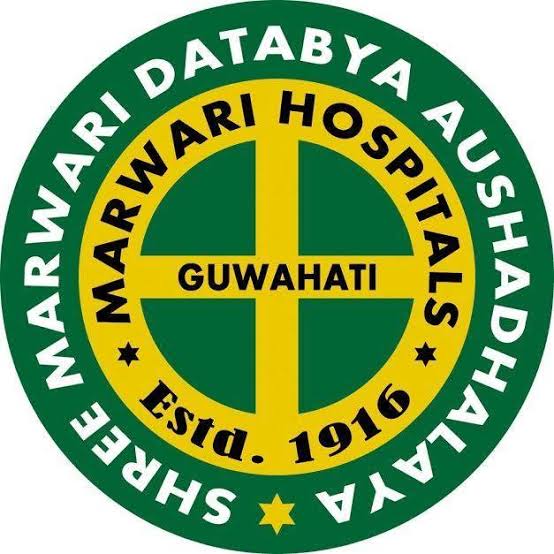

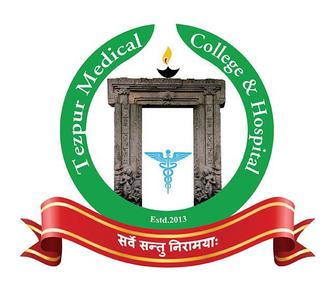

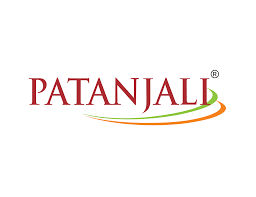


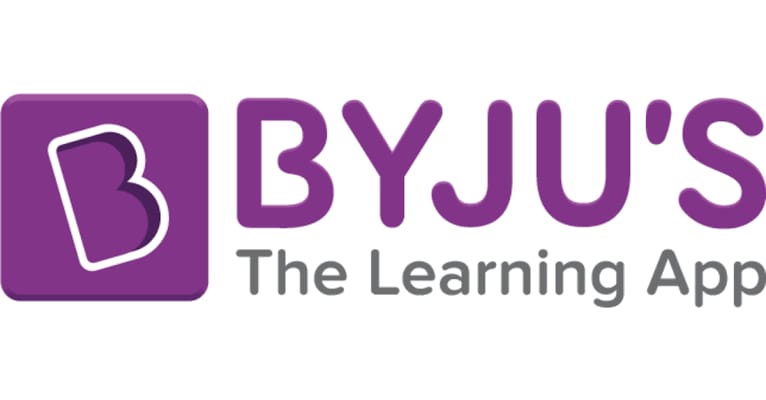






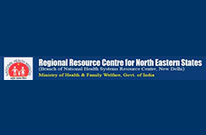


![24[7].ai 24[7].ai](https://adtu.in/files/247ai.jpg)













.jpg)









.png)








"I am a BBA student of 3rd semester. I hail from Bhutan. I vow that I am having a great experience i...
"AdtU is amazing. I am a BBA student of 2019-22 batch and I am just grateful for the amount of oppor...
Let us be grateful to the people and place who makes us happy. They are the charming gardeners whom ...
Currently I am pursuing MBA in Assam Down Town University. MBA is the professional course through wh...
AdtU is a university that focuses on giving knowledge, education and simultaneously making the stude...
The Assam downtown University has been a great learning experience. The university has provided me w...
My experience with AdtU has been splendid one indeed. Little needs to said about its scenic infrastr...
As a student I am very glad that I have got an opportunity to study here in Assam downtown universi...
My name is Sakhyajit Roy. I?m from Tripura. I joined the university on Auguest, 2017 as a student of...
I share immense pleasure to share my post graduate program experience in Assam down town University....
AdtU is a platform where I got golden opportunities to feed my zeal for knowledge through the dynami...
I am fortunate to get an opportunity to study here in Assam Downtown University. The best thing abou...
Our university is one of the best place for developing ourselves in the field of research and acedem...
ADTU is a university that is very good interms of infrastructure, academics and placements. Our tea...
It is one of best private colleges in North East India, it also provides a good environment for ed...
ADTU is a good University which provides the students with best quality lectures and ensures comfort...
The environment of Assam downtown university is very pleasant.The department of BMLT is very good a...
The university has all the necessary facilities and amenities for students . The classrooms and the ...
Assam downtown University is well recognised all over india. In the ongoing pandemic situation it ha...








